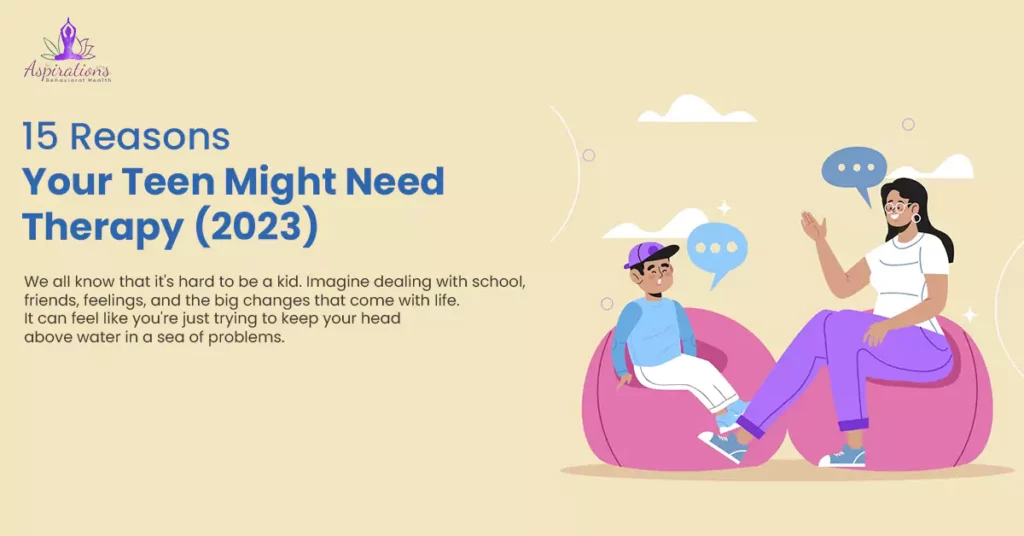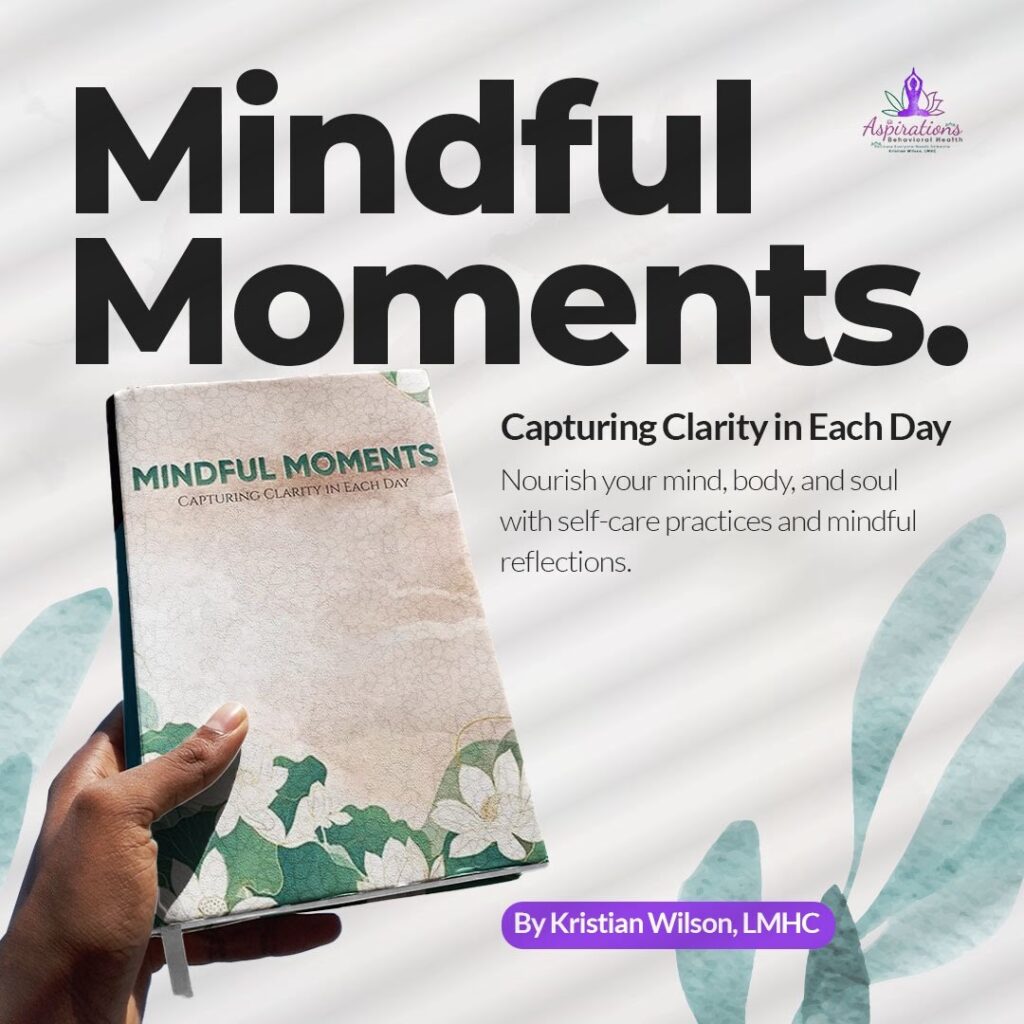We all know that it’s hard to be a kid. Imagine dealing with school, friends, feelings, and the big changes that come with life. It can feel like you’re just trying to keep your head above water in a sea of problems. We might think as parents, “Oh, this is just a phase.” But what if there is more? What if they needed a therapy life vest to help them get through the rough seas?
Not every fight is just “normal for teenagers.” They sometimes need a bit more help. Here are 15 reasons your teen might need therapy from a professional. If we know this, we can help them navigate safer waters.
Key takeaway section
- Adolescence is a tumultuous phase. From school pressures to societal norms, teens grapple with various challenges.
- Not all teen struggles are mere ‘phases.’ Some require professional intervention.
- Rising issues among teens extend beyond typical sadness or worries.
- Not all behavioral issues are rebellion. Relationships, too, can deeply affect a teen’s psyche.
- Family struggles can ripple into a teen’s well-being.
- Teens exploring their gender and sexuality need understanding and support.
- Therapy isn’t about ‘fixing’ but guiding and understanding.
- Support, open dialogue, and empathy are crucial.
- A trusted platform offering specialized therapy for teens.
- With the proper guidance, teens can transition into adulthood more smoothly and confidently.
15 Most Common Reasons Why Teens Seek Therapy
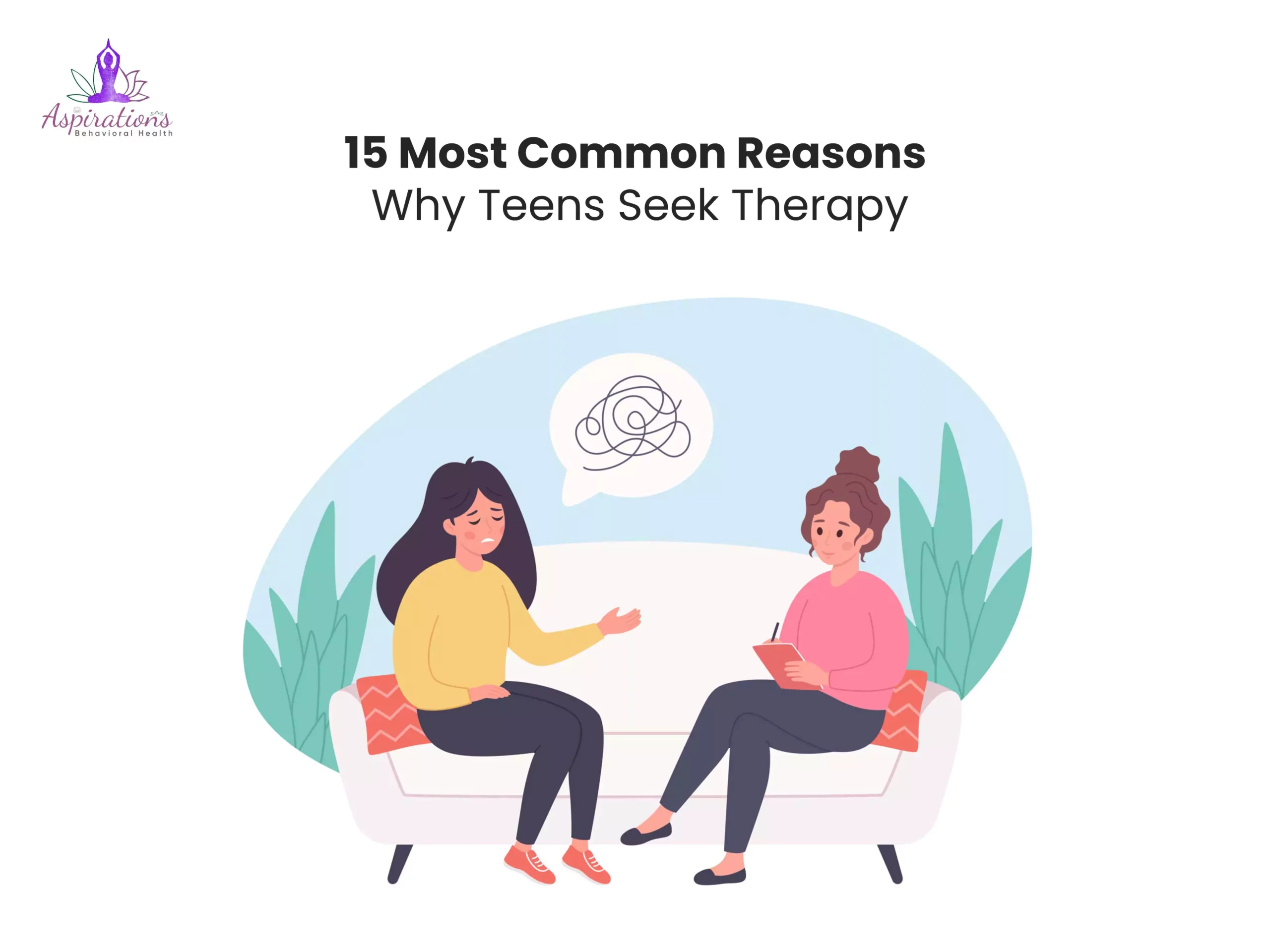
Teens face unique challenges in today’s fast-paced world. From personal struggles to societal pressures, the top 15 reasons they might turn to therapy for support and guidance.
1. Depression
Depression is a big problem for many kids because it doesn’t just mean “being sad.” It is a deep, long-lasting sadness that affects everything. Things like genes, bullying, or stress at school can all play a role. Early help can stop problems from worsening, so therapy is important to help people understand and control their feelings.
2. Anxiety Disorders
Aside from the normal worries teens have, anxiety illnesses can make it hard for them to go about their daily lives. They might have a lot of worry, panic attacks, or do things repeatedly. With the rise of social media, these feelings have also grown stronger. Therapy gives people ways to deal with their problems and helps them get back in charge.
3. Behavioral Problems
Even though it’s normal to go through defiant stages, persistent behavior problems like violence or not going to school point to deeper problems. This behavior could be caused by feelings inside or outside of the person. Therapy gives young people a safe place to talk about and deal with these problems, which helps them grow well.
4. Family Problems
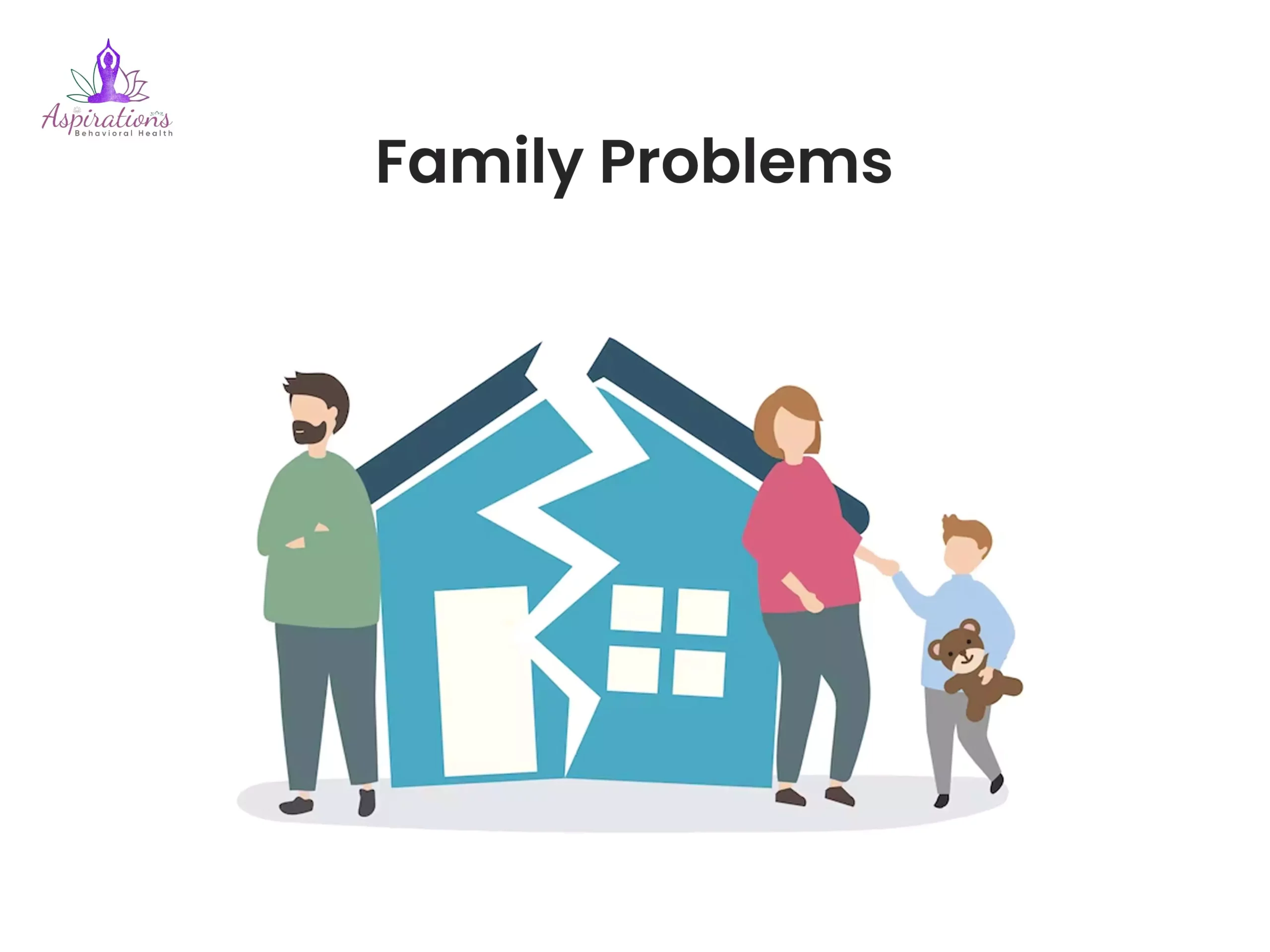
The way a family works can have a big effect on a teen’s health. Stress and misunderstanding can be caused by divorce, sibling rivalry, or a fight between parents. Therapy can help the whole family talk to each other and get along better. It can also help the teen deal with these problems.
5. Low Self-esteem
A teenager’s self-esteem can be hurt by how people compare and judge each other in today’s world. They might feel like they need to be better or always do better. Therapy gives a person a neutral place to regain self-confidence, knowing they are worth loving.
You can check on ABH’s platform about how to overcome low self-esteem.
6. Trauma
Traumatic events can greatly affect a teenager’s mental health, causing things like flashbacks and withdrawal. Therapy can help you work through these traumas, give you ways to deal with them, and create a safe place to heal and find security.
7. School Related Issues
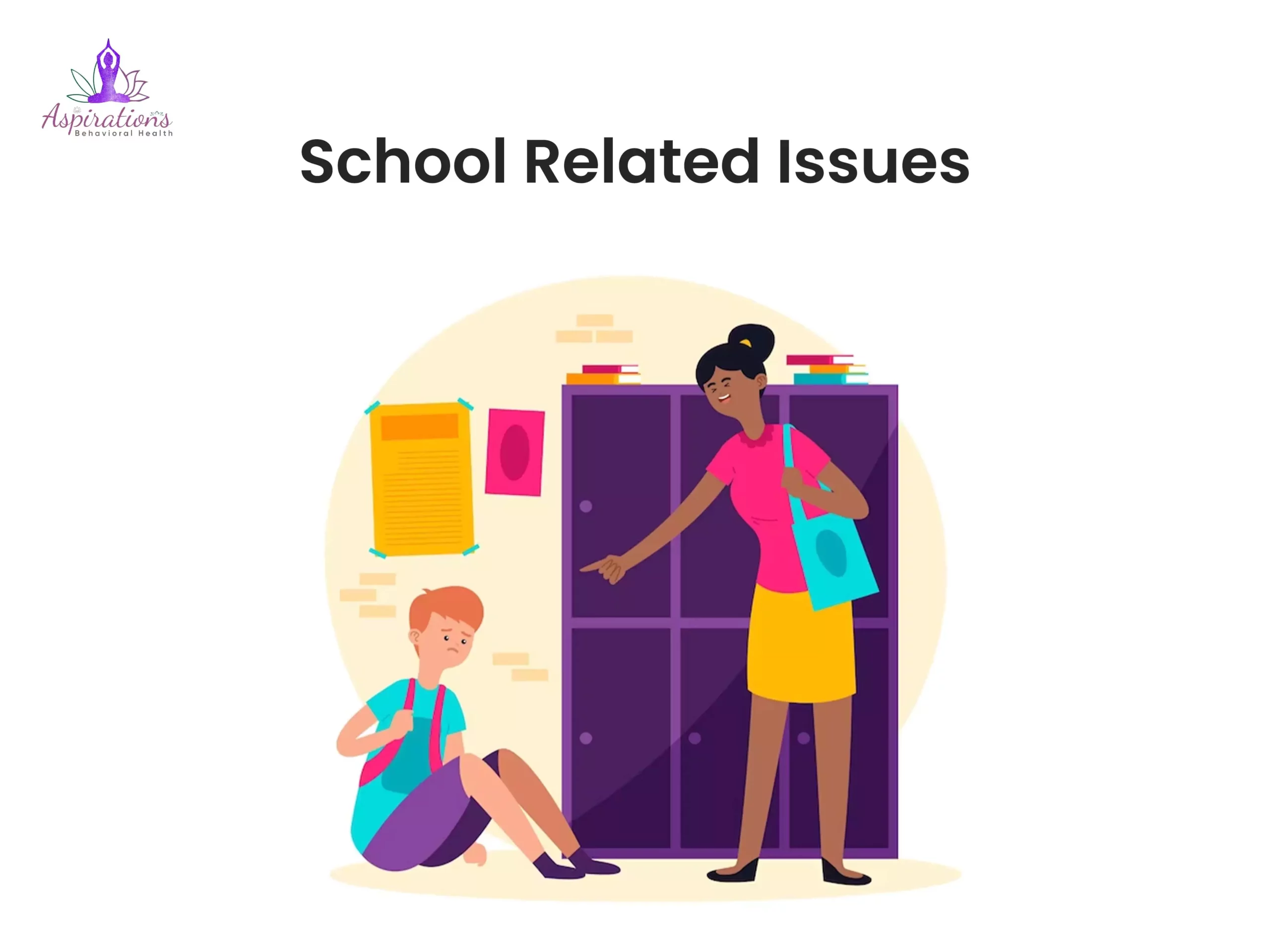
Pressure at school, bullying, or being alone can all significantly affect a teen’s mental health. Therapy can help deal with these problems, learn how to deal with them, and set healthy limits, all of which can make school more enjoyable.
8. Gender Identity Issues
Some teens have trouble with their gender identity in a world where ideas about gender are changing. It can be hard to deal with being stuck or misunderstood. Therapy helps people find their real selves by giving them direction, understanding, and help.
9. Sexuality Issues
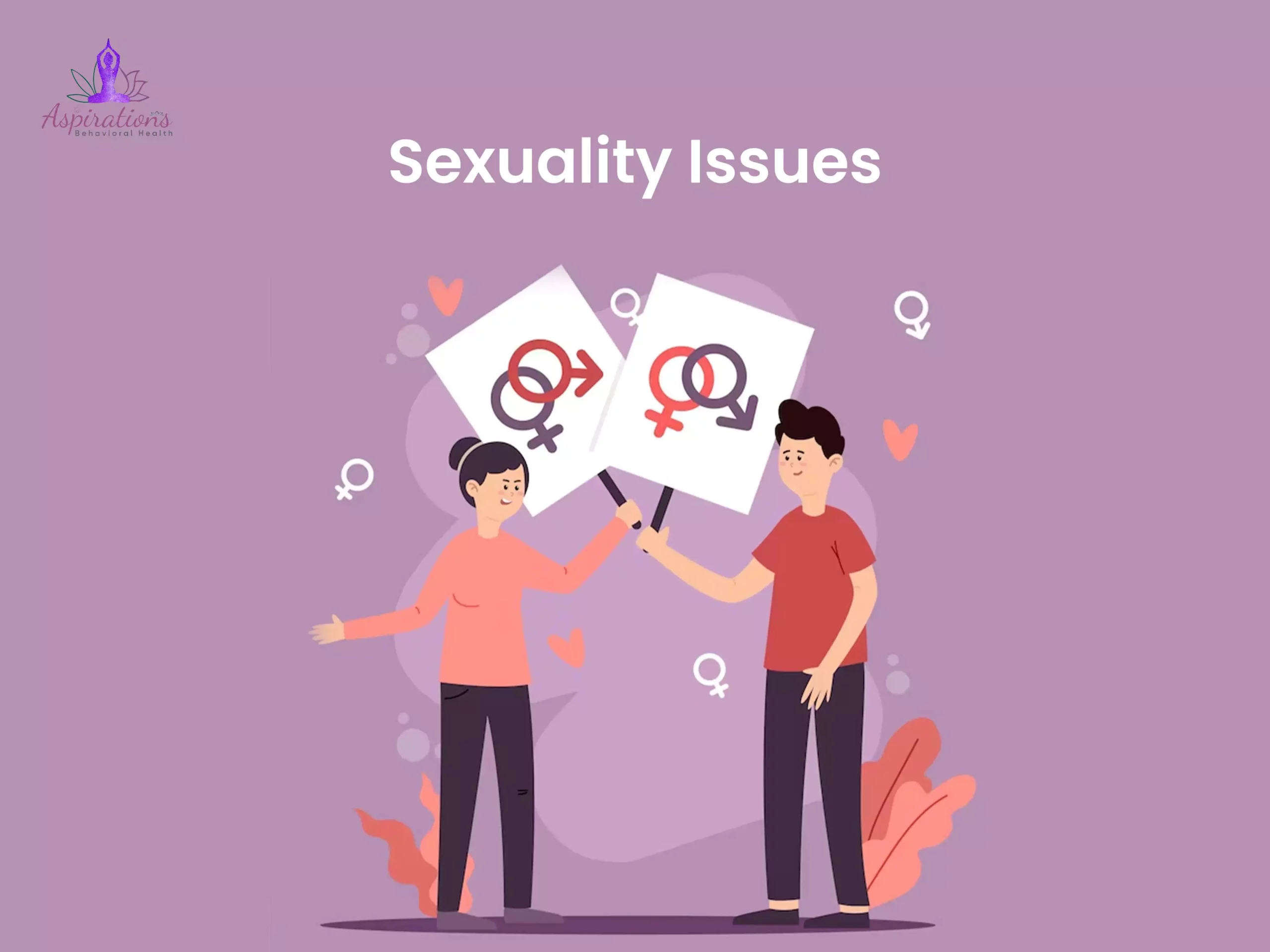
Teenagers often have a hard time coming to terms with their sexuality. It can be hard to deal with other people’s opinions, your confusion, or even rejection. Therapy gives people a safe place to discover, accept, and enjoy who they are.
10. Self-harm
Self-harm can be a sad way to ask for help and a sign of being in a bad place. It’s not just a way for some kids to get attention; it’s also how they deal with strong feelings. Therapy helps find out what’s going on and gives better ways to deal with it.
11. Grief and loss
When a youngster loses a loved one, it can turn their world upside down. Everyone shows their grief in different ways. Therapy gives people a safe place to talk about their feelings, work through their loss, and find a way to move on.
12. Substance Abuse Issues
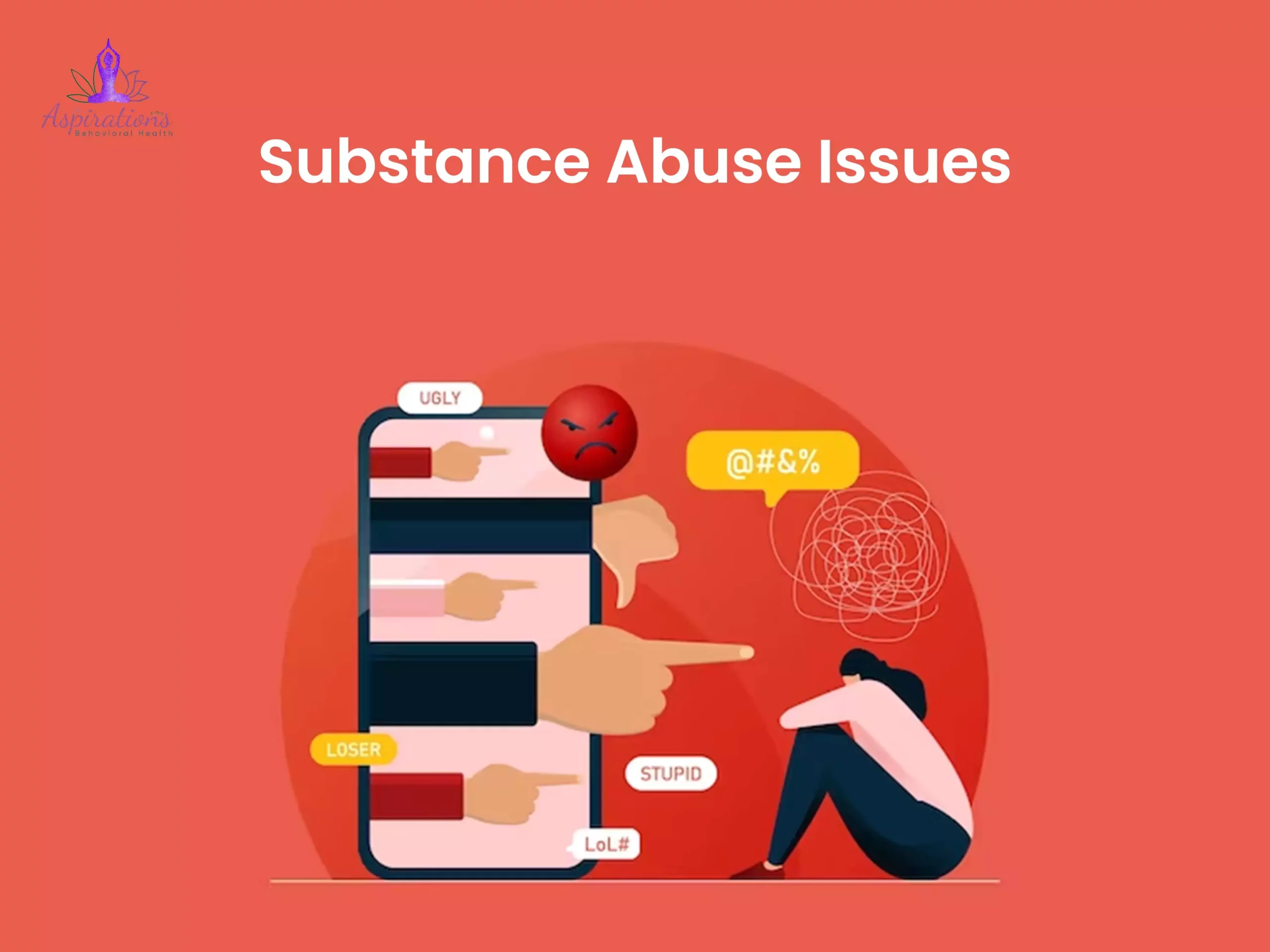
For some teens, drugs or alcohol can be a way out. But addiction is often a cover for greater emotional issues. Therapy can help find and solve core problems and give people the tools to build a future without resources.
13. Adjustment to Change
Life changes, like moving or getting a divorce, can be hard for young people to understand. Therapy helps them understand and adjust to these changes without hurting their mental health.
14. Eating Disorders
Eating disorders are serious illnesses that can kill you because of social pressure or inner disputes. Therapy allows you to deal with these problems, build a healthy view of yourself, and learn how to eat well.
15. Relationship Problems
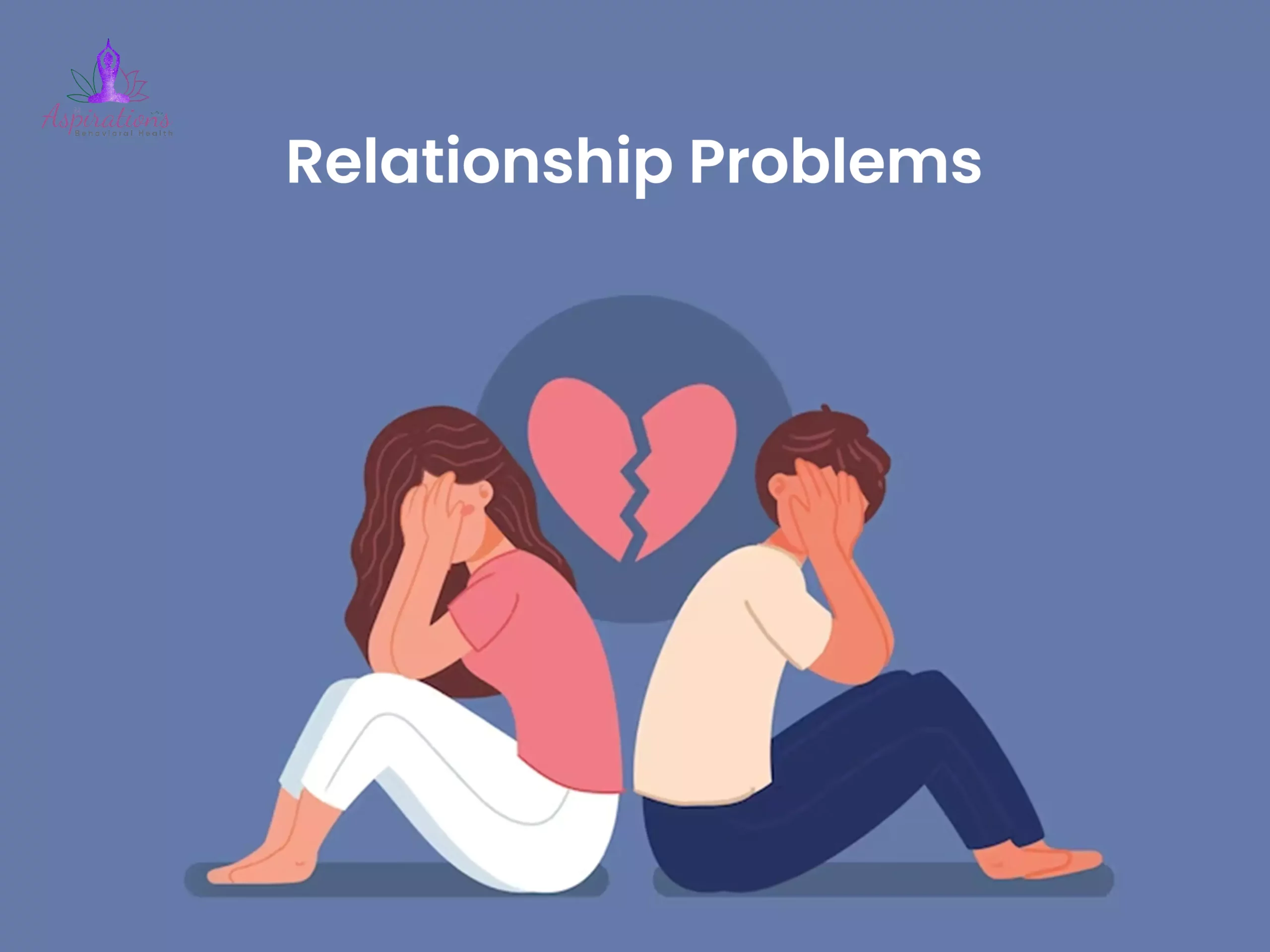
Relationships between teens, whether friendships or first dates, are full of strong feelings. The effects of a fight or a broken heart can be severe. Therapy can help you learn how to have good relationships, set limits, and heal from emotional wounds.
Why Aspirations Behavioral Health Best for Teenager Therapy
Selecting the right online therapy center can make all the difference in the therapeutic journey. Aspirations Behavioral Health stands out in providing the best and most convenient online therapy for teenagers. Our therapists are fully licensed in their respective fields, ensuring they have the proper training and expertise to offer care. We use encrypted communication channels and maintain strict patient confidentiality in line with HIPAA or similar standards.
Aspirations Behavioral Health offers a wide range of services, including:
Online Marriage Counseling
Online Family Therapy
Online Individual Consultation And Coaching
Therapy For Teens FAQs:
What is the youngest age for therapy?
There is no set “youngest age” at which a person can start therapy. Babies and children can benefit from help when they are young, especially if they have trouble growing and learning. Therapists often work with carers to improve how parents and children talk to each other. Young children often use play therapy to deal with emotional and behavioral issues.
When parents use their child as a therapist?
Parenting is when parents use their kids as tutors. This happens when a child is made to act like an adult and help their parents deal with their feelings. It can hurt the child’s growth and health and cause mental, psychological, and relationship problems in the future.
Why is my daughter going to therapy?
Your girl might go to therapy for several reasons, such as emotional problems, stress, or problems with her development. Therapy gives you a safe place to talk about your thoughts, find ways to deal with them, and learn more about yourself. Respecting her privacy and talking to her openly can help her understand and follow her therapy plan.
Should I tell my parents I’m going to therapy?
It’s up to you to tell your parents about therapy. Consider why you want to do it, what might be good about it, and how they might respond. It can help if you feel like they care about you or if talking about it makes you feel better. But think seriously about your choice if it could lead to bad things.
How do I tell my daughter she needs therapy?
Try to be kind and understanding with your kid. Choose a place that is quiet and private. Gently talk about your worries and keep your attention on your love and well-being. Try not to sound harsh or aggressive. Give them treatment as a way to help them, not as a way to “fix” them. Listen to them and make open conversation a priority.
Final Words
Navigating the teen years can be like deciphering a complex puzzle; sometimes, the pieces must fit right. If you’ve recognized any of the “15 Reasons Your Teen Might Need Therapy” in your child’s behavior, consider it a nudge towards seeking professional guidance.
Remember, therapy isn’t a sign of weakness but an empowering step toward understanding, growth, and resilience. Every teen deserves the best tools to construct their path to
adulthood; sometimes, therapy is the blueprint they need. Here’s to brighter futures and stronger connections!


